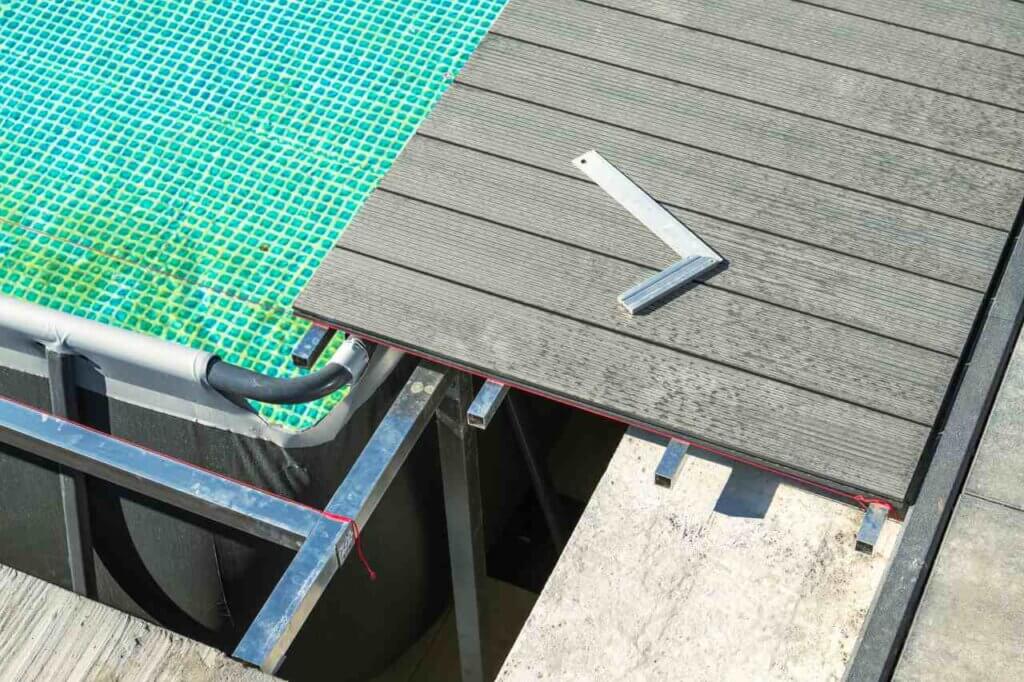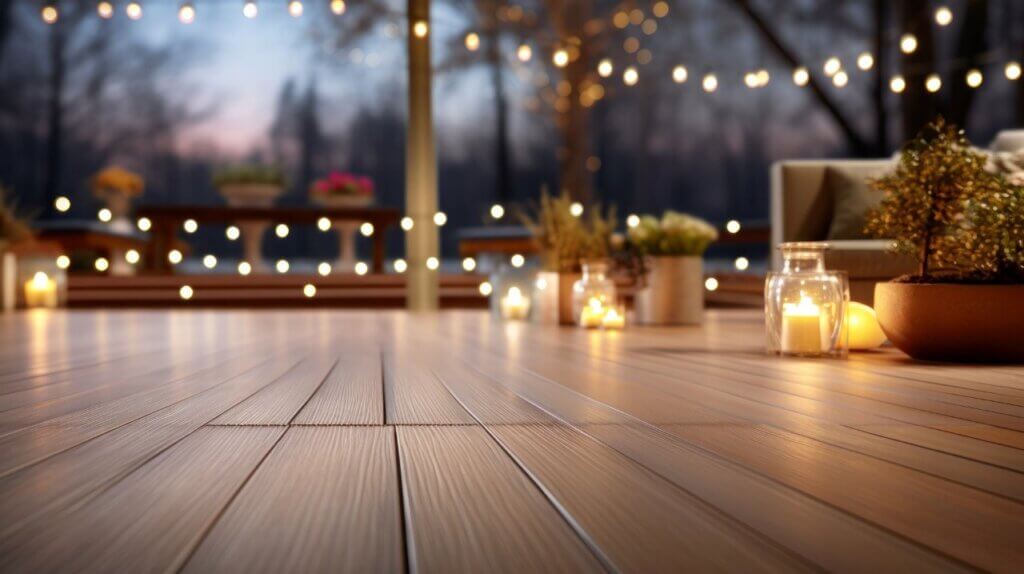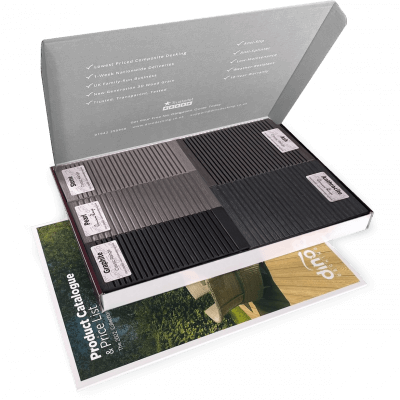Glass Balustrade Installation: The Complete Guide
Installing glass balustrade can be an ideal way to add safety and style to an existing deck, walkway or other
Products in Stock
Lowest Prices
Express Delivery
10-Year Warranty
February Sale. Up To 15% Off.

Which is better, PVC or composite decking? This is a question many people ask when building an outdoor deck and it’s an important one. When you’re planning to build a deck, the material you choose can make or break your outdoor space. There are lots of decking materials on the market, but these days, PVC and composite decking are often the top contenders. However, what’s the real difference between PVC and composite decking? And which one’s going to give you the best bang for your buck?
Whether you’re a DIY enthusiast or just someone who wants a great outdoor space, we’re going to break down the key differences between PVC and composite decking, so you can make an informed decision for your next project.
PVC decking is a fully synthetic option made entirely from plastic. It’s pretty much designed to look like wood without the maintenance headaches that come with timber. PVC is lightweight, resistant to moisture, and doesn’t splinter – a big plus if you’ve got kids or pets running around.
But PVC decking also has its problems; PVC can get pretty hot underfoot on sunny days, and some people find it lacks the natural feel of wood. It’s also worth noting that while PVC is durable, it’s not invincible, and extreme temperature changes can cause it to expand and contract more than other materials.
| Advantages | Disadvantages |
|---|---|
| Durable | Higher upfront cost |
| Lightweight | Low quality PVC material won’t last as long |
| Low maintenance | |
| Weather resistant | |
| Resistant to mould, splitting and warping |
Composite decking, on the other hand, is a blend of wood fibres and recycled plastic. It’s like the best of both worlds – the look and feel of wood, with added durability and less maintenance. And if you’re after quality composite decking in the UK, you’ll find it’s often more cost-effective in the long run than traditional timber.
Another one of the great things about composite is its versatility; it comes in a wide range of colours and textures, so you can really customise your outdoor space. Plus, composite decking is eco-friendly, often made with recycled materials. Read more about what are composite decking boards.
| Advantages | Disadvantages |
|---|---|
| Durable and long-lasting | Some boards require a substructure installation |
| A range of colour options | |
| Lightweight | |
| Low maintenance | |
| Weather resistant | |
| Resistant to mould, splitting and warping | |
| UV resistant |
Now that we’ve covered the basics, let’s really get into the details of PVC vs composite decking.
What really determines the argument between composite vs PVC decking is how much either one expands. Expansion usually occurs when decking boards are in contact with heat for an extended period of time. It can cause them to warp, change shape and eventually split.
Composite is known to expand and contract less than PVC decking when exposed to direct sunlight, making it the better option. Composite boards usually have extra protection built in during the manufacturing process, which gives them extra durability once laid. PVC decking on the other hand, especially when exposed to the sun for long periods, can expand over time, which will eventually cause the decking to warp and lose its original shape.

If you’re not a fan of spending your weekends sanding and staining, you’ll be happy with both PVC and composite. PVC and composite decking are very easy to clean, all you need is a bit of soap and water to keep your decking looking fresh. For extra freshness, a specialised composite decking cleaner can leave your decking looking new again.
In addition, both PVC and composite decking require very little maintenance due to their durability and sturdiness. However, composite decking often has the edge in terms of UV resistance, meaning it will fade less in strong sunlight.
Here’s where composite takes the lead: composite decking options are mostly made from recycled materials, making them a more eco-friendly choice. PVC, while recyclable, is not as green in its production process, and is made with synthetic polymers.
Safety is something you’ll want to consider when choosing a decking material because some boards are safer than others. When it comes to PVC vs composite decking, one of the main safety issues to consider is slipping. Composite decking has anti-slip properties, making it much safer than PVC and wooden decking.
If you are building a deck in an area that is likely to get wet, you could consider incorporating some decking shade or rubber mats for extra safety during wet weather.
Both composite decking and PVC follow a similar installation process, but PVC is often easier to work with. PVC decking is lighter than composite and wooden boards, making it easier to install, especially if you are installing the deck yourself.
And finally, while both materials come in a variety of colours and finishes, composite often looks more natural; it can often more closely mimic the appearance of real wood, right down to the grain patterns. PVC, while improving, can sometimes look a bit too “perfect” to pass for real timber.
Don’t forget that we at Dino Decking offer free decking samples of all our composite decking colours, so you can even test out different aesthetics to see what looks best in your garden.

When looking at the upfront costs of composite decking, it tends to be cheaper than PVC. Despite PVC decking not being as durable, it tends to lay on the pricier side. However, both of these decking materials still work out cheaper than wood on the long run due to their low maintenance requirements. Wooden decking might need to be replaced after a few years, but PVC and composite will remain fresh for years to come.
We’re not trying to be biased here (okay, perhaps just a little) but composite decking really has a lot going for it; it’s durable, low-maintenance, and often more aesthetically pleasing than PVC. It also tends to feel incredibly natural underfoot and doesn’t get as hot in direct sunlight as PVC.
Plus, if you’re after a more natural look and feel, composite is probably your best bet – not to mention that it’s also a great choice if environmental concerns are high on your list of priorities.
And while it might cost a bit more upfront than some PVC options, its durability and low maintenance requirements often make it more cost-effective in the long run.
But don’t write off PVC completely. If you’re in the market for a low-cost option, it can do the job brilliantly and usually has a greater variety of colour options than composite.
Overall, both composite decking and PVC have their pros and cons and the one you choose is all down to your personal preference and needs. So, if you’re thinking about choosing between PVC and composite decking, bookmark this article for reference before considering what elements are best for you.
And at Dino Decking, we’re committed to helping you find the perfect decking solution for your needs. Whether you decide on PVC or composite, we’re here to guide you through the process and ensure you end up with a deck you’ll love for years to come. And as we mentioned above, you can also reach out to us for a free sample of our decking materials, so you can see exactly which material looks best in your garden.
Ready to start your decking project? Get in touch with us today, and let’s create your dream outdoor space together.

Our sample pack contains a sample piece of each colour currently available. Order your free sample pack today to compare the colours and get a true feeling of the Dino Decking range!
Installing glass balustrade can be an ideal way to add safety and style to an existing deck, walkway or other
Composite decking is far more resistant to damp, rot, mould and warping than traditional timber decking, but it is still